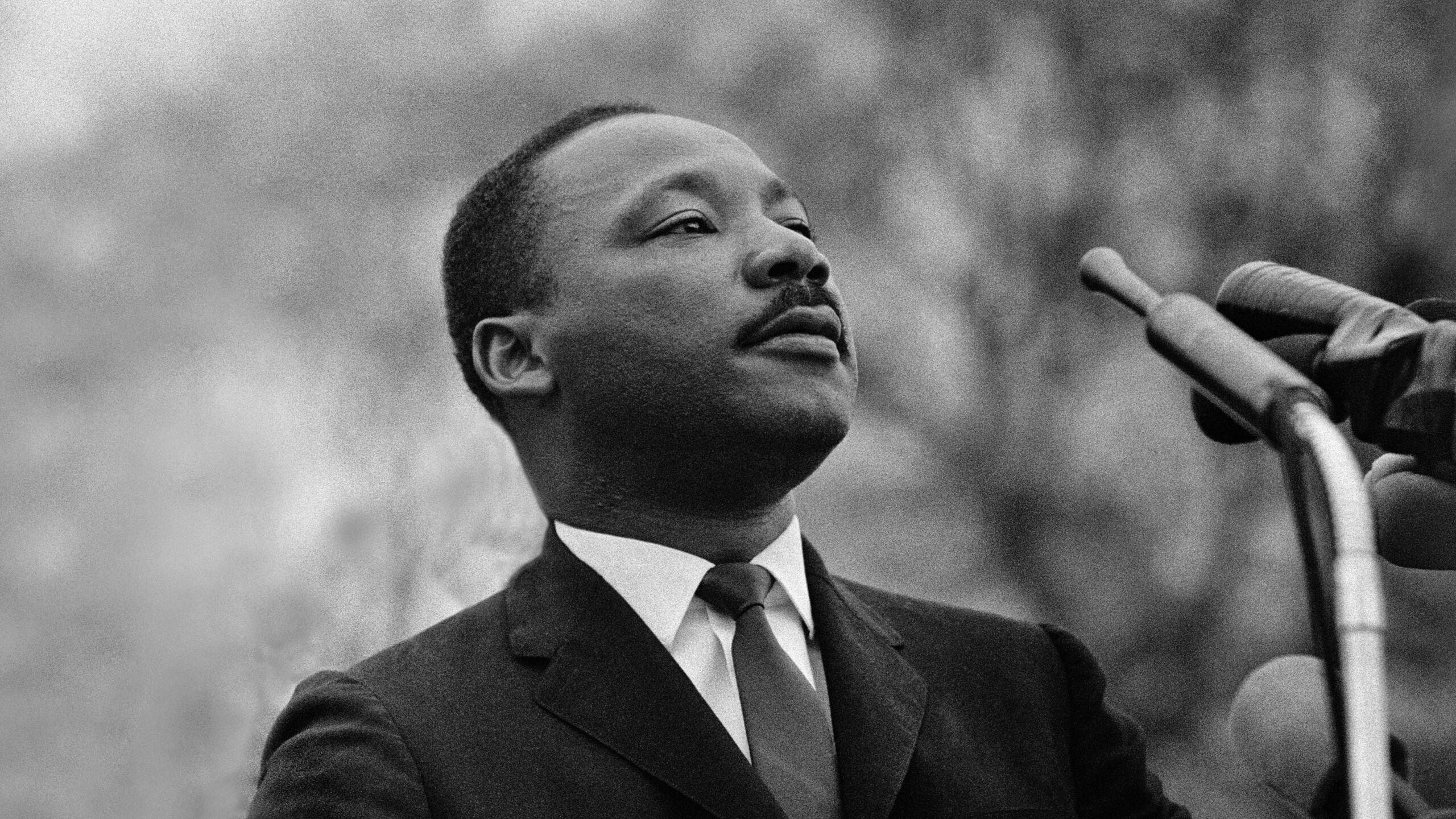
On the night before his assassination in Memphis, Tennessee, on April 4, 1968, the Reverend Dr. Martin Luther King, Jr. uttered the following words from a speech that he made to a packed auditorium of enthusiastic Civil Rights supporters:
“Well, I don’t know what will happen now. We’ve got some difficult days ahead. But it really doesn’t matter with me now, because I’ve been to the mountain top. And I don’t mind. Like anybody, I would like to live — a long life; longevity has its place. But I’m not concerned about that now. I just want to do God’s will. And He’s allowed me to go up to the mountain. And I’ve looked over. And I’ve seen the Promised Land.”
I borrow those words from the erudite and eloquent speech that he gave that night as a segue into some of my thoughts in regard to the current state of democracy in the world. It is a status that appears to be diminishing, according to many academics and political pundits, with dire implications for its continued influence internationally. Will it be overrun by autocratic and oligarchic forces? Will it be vanquished as some have predicted? Those are questions for the ages, with answers which are shrouded by shadows that have been cast by the fickle words and actions of many, especially among those who have benefited from liberal democracy the most.
I do not know what will become of democracy. I wish that I had whatever crystal ball that Nostradamus gazed into. I wish that I had the unshakable confidence in the interpretation of social science data that sometimes goes horribly wrong, as many people still do. I wish that I had the unflappable optimism in human nature that others possess. Sadly, I do not. But, if the north star of history is anything to steer by, particularly in these dark and tempestuous times, then there is hope, if not for democracy as we now know it or envision it, but for freedom, for one that is rooted in mankind’s primeval, insatiable and rabid appetite for their release from the shackles of tyranny and of oppression. I believe that their desire for freedom predates democracy itself — whatever version of it that now parades itself on the world stage — and that democracy is, merely, incidental, and, simply, an ideological fruit that has emerged out of that perennial quest for political freedom.
The first known democracy in the world was in Athens. Athenian democracy developed around the fifth century B.C. The Greek idea of democracy was different from present-day democracy because, in Athens, all adult citizens were required to take an active part in the government. Whenever I become discouraged and I feel weary at the present state of affairs in the world, at the hands of autocrats, I allow myself to take sabbaticals — making mental trips back in time into the settled and sober realm of world history. I do so to mount its peaks in order to appreciate its overarching vistas of life, in order to obtain insightful and instructive perspectives which are relevant to my own time and my own experiences.
When I went to Athens of the fifth century B.C., on one such journey, I took my looking glass with me. I walked upon its seven hills, and after having selected the highest perch, I postured and then I steadied myself to look back down at the rugged terrain of ancient history into Babylonia, at a time of revolt for freedom which took place between 626 and 620 B.C. — over a hundred years before the birth of democracy. The Babylonians managed, on that occasion, to defeat the Neo-Assyrian Empire which had ruled Babylonia for more than a century. I was encouraged by what I had seen.
Then, moving on from there, my gaze went much further back in time, to over 200 years before that uprising in Babylonia, and I arrived in China in about B.C. 842, just in time to witness the Compatriots Rebellion which was an uprising against King Li of Zhou, and which ended with the King’s exile, establishing the interregnum Gonghe Regency, until King Xuan of Zhou took the throne. I was satisfied with what I witnessed, and yet I wanted to see more.
And, so, I adjusted my lens for a farther and deeper inspection of the past, well away from the noble light of nascent Athenian democracy.
And then, squinting, I managed to see the Sumerian revolt in Lagash, Sumer, of 2380 B.C, the Nubian revolt in Egypt, of 2690 B.C., and also the Set rebellion, which also took place in Egypt, in 2730 B.C. — the latter occurring over 2,000 years before democracy was born, before it was fed and burped, before it was weaned, and before it was allowed to grow and to develop, through all the turbulences of its adolescence, right on into what we know it today as democracy.
I then ceased looking backward from my high perch in Athens and turned my looking-glass in the direction of modernity — looking forward, as far and as long as I could. My eyes skipped over a few places, as there was so much to see and too much to tell, until their gaze fixed briefly upon the Roman Revolution of 510 to 509 B.C. I then spied the Athenian Revolution of 508 to 507 B.C., then the Ionian Revolt of 499 to 493 B.C., the First secessio plebis of 494 B.C., the Bel-shimmanni’s rebellion of 484 B.C., the Shamash-eriba’s rebellion of 482 to 481 B.C., and then, with my eyes starting to feel weary, I decided to take a break for several hundred years.
When I opened my eyes again, I witnessed the issuance of a document in England, that was called the Magna Carta, in 1215 A.D., which espoused the principle that the king and his government were not above the law. It sought to prevent the king from exploiting his power, and placed limits of royal authority by establishing law as a power in itself. I was present at the birth of one, Oliver Cromwell, in 1599. I saw the beheading of he who was his king, one, Charles I, in 1649. Later on, I saw the American Revolutionary War which raged between 1775 and 1783, and witnessed its aftermath. I gasped at the atrocities of the French Revolution which bathed the country in blood between 1789 and 1799 and also that which I had seen in the Haitian Revolution that followed between 1791 and 1804.
I then spied the British West Indies and saw the Bussa slave rebellion in Barbados, in 1816, the slave revolt in Demerara-Essequibo (now part of Guyana), in 1823, and a slave revolt in Jamaica in 1831, before emancipation. I was skeptical about what the British called “emancipation” only because I saw the “freed” Jamaicans, again, raising hell at the Morant Bay Rebellion, over three decades later, in 1865, long after “emancipation”. And, I would be remiss not to mention the ruckus that the slave, Nat Turner, had raised in slaveholding America in 1831, and what John Brown, a white man, had tried to do to liberate slaves, through the shedding of blood of his own race, much later in 1859.
I also saw the Czar of Russia and his imperialist forces toppled by the masses in the Bolshevik Revolution which occurred between 1917 and 1923. Those were all bloody times, and the oppressed did not always achieve success, but the embers of their desire for freedom still burned — unextinguished. I learned from what I had seen that not all fires can be put out by violence and by intimidation.
I had seen enough, and when I closed my eyes, intending to give them some relief from the strain of peering through the hills and the dales of history, I began to see faces — faces upon faces — and I heard a voice calling their names as they passed right by me in my mental skies. I saw Mahatma Gandhi of India. I saw Patrice Lumumba of the Democratic Republic of the Congo. I saw Dr. Martin Luther King, Jr. and Malcolm X of America. I saw Lech Walesa of Poland. I saw Nelson Mandela of The Republic of South Africa. I saw the Dalai Lama of Tibet. And, I saw Alexey Navalny of Russia. There were other faces coming to me from other times and places. Their experiences were different, but the theme was always the same — freedom! Freedom! Freedom!
And so, although we face some difficult days ahead. And although the general well-being of liberal democracy is fraught with fears and dogged by uncertainty, history reminds me that no matter how daunting and how dour the hour that mankind’s indomitable quest for freedom — which provides the basis for true democracy — will always provide a rallying cry to throw off the chains of tyranny and of oppression. Looking from the mountain top I still saw freedom, although doubt clouded democracy from my view. I still hold to Dr. King’s belief, one artfully crafted by and encapsulated in his own words that: “The arc of the moral universe is long, but it bends towards justice.”
Against the threats posed by autocracy — threats which appear to be cyclical within the community of mankind — I have looked over, and I have seen the Promised Land.
Therefore, I admonish autocrats, oligarchs and demagogues everywhere to beware, especially while dealing with a populace which has known and which has enjoyed, intimately, the rights and the privileges that democracy offers. They would do well to heed the following sage words of Maya Angelou:
“Independence is a heady draft, and if you drink it in your youth, it can have the same effect on the brain as young wine does. It does not matter that its taste is not always appealing. It is addictive and with each drink you want more.”
The following article, written by Dr. Miguel Angel Lara Otaola, titled, Worried about the state of democracy? Here are some reasons to be optimistic instead, appeared in the Washington Post on March 2, 2022. In that analytical piece, the writer, pointed out that:
“In its recently published 2021 Democracy Index, London-based newspaper The Economist finds that the state of democracy around the world fell to a record low. Similarly, the non-governmental organization Freedom House reported in 2021 that countries where freedom declined outnumbered those where it gained. And the inter-governmental organization International IDEA (Institute for Democracy and Electoral Assistance), where I work, found that 2021 was the first time since we began tracking that the world has seen five consecutive years of a negative democratic trend.”
And, after discussing data in tableau reports on the decline of democracy in the world that were embedded in the article, Dr. Otaola, who is the Senior Adviser, Democracy Assessment in the Democracy Assessment Unit at International IDEA, went on to say that:
“One century ago, democracies made up only 14 per cent of countries worldwide. Today, different measures estimate between 44 and 59 per cent of governments are democratic.
Moreover, democracy continues to expand. Since 2000, 25 countries from regions all over the world have transitioned to democracy, from Peru to the Gambia.
In addition, democracy has proven more resilient than authoritarianism. Out of all democratic countries that existed in 1975, 92.1 per cent remain democratic today. Only three no longer qualify as democratic: Turkey, Thailand, and Venezuela. Moreover, political scientist Nancy Bermeo shows the current mix of democratic backsliding can be more easily reversed than in the past. Specifically, countries with toppled democracies remain autocratic for much less time than in the 1950s, ’60s and ’70s.”
And, so — autocrats, oligarchs, and demagogues everywhere beware. Beware. Beware.



